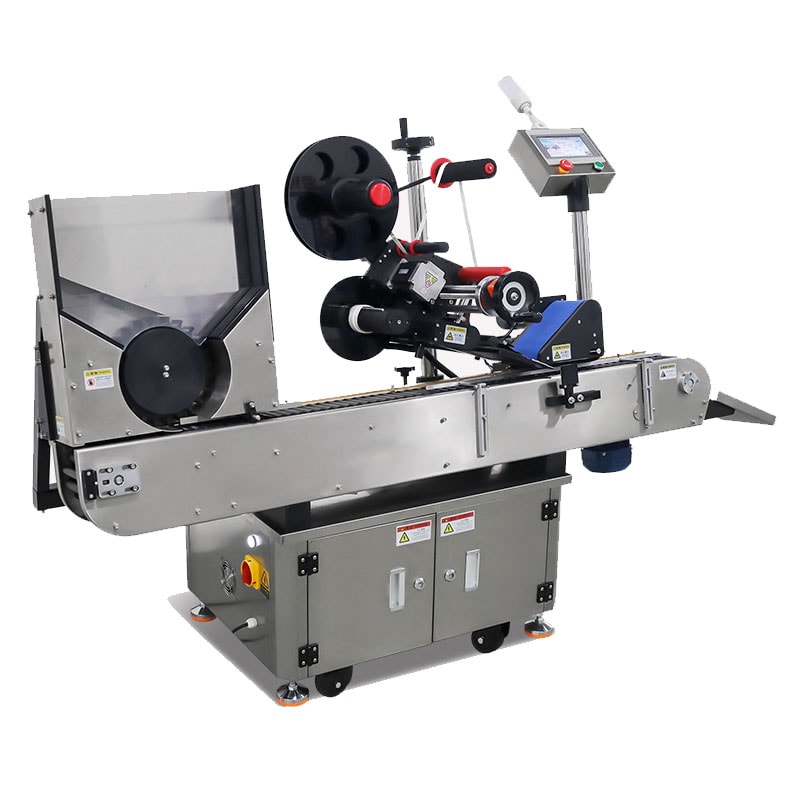Labeling chemicals accurately is critical for safety, compliance, and operational efficiency. With various regulations governing the labeling of chemical products, selecting the right chemicals labeling machine can be a daunting task. Errors in labeling can lead to severe consequences, including safety hazards and legal penalties.
A well-chosen chemicals labeling machine ensures that all necessary information is clearly and accurately displayed, meeting industry regulations and reducing the risk of errors. This guide will help you understand what to look for in a chemicals labeling machine to ensure your operations are safe, compliant, and efficient.
Let’s explore the key factors you need to consider when selecting a labeling machine for your chemical products.

Ensuring Compliance with Industry Standards
When dealing with chemical products, compliance with regulations such as the Globally Harmonized System (GHS) is non-negotiable. Labels must include hazard pictograms, precautionary statements, and other critical information. A chemicals labeling machine must be capable of printing these details clearly and consistently on various container types, from small bottles to large drums.
Incorporating GHS-compliant labeling technology into your production line ensures that all chemical products are labeled according to legal requirements. This not only protects your business from legal repercussions but also ensures the safety of those handling the chemicals. Automated labeling machines designed for chemicals can help achieve this level of compliance by providing accurate, high-quality label application every time.
In my experience, investing in a machine that prioritizes compliance reduces the risk of costly errors and enhances overall safety in the workplace.
Selecting the Right Labeling Technology
Choosing the right technology for your chemicals labeling machine is crucial for achieving efficiency and precision. Different types of labels may require different application techniques, such as pressure-sensitive labels or thermal transfer printing. Your choice will depend on the specific needs of your chemical products and the materials used for the containers.
For example, pressure-sensitive labels are ideal for applying high-resolution images and text, ensuring that all critical information is legible and durable. On the other hand, thermal transfer printing is excellent for producing highly durable labels that can withstand harsh conditions, which is often necessary for chemical products stored in extreme environments.
Understanding the specific needs of your products and production line will help you choose a labeling machine that delivers the best results.
Handling Diverse Container Types
Chemical products are often stored in a wide variety of containers, including cylindrical bottles, drums, and even flexible packaging. A versatile chemicals labeling machine must be able to handle different container shapes and sizes without compromising on label accuracy.
Machines designed for this purpose are equipped with adjustable systems that can easily adapt to various container dimensions. Whether you are labeling small vials or large industrial drums, the machine must be capable of applying labels precisely to ensure that all safety information is visible and intact.
Selecting a machine that can handle diverse container types will not only increase efficiency but also reduce the need for multiple machines, saving space and investment costs.
The Role of Automation in Chemical Labeling
Automation plays a significant role in modern labeling operations, especially in the chemical industry. Automated chemicals labeling machines can handle high-volume production with minimal human intervention, reducing the risk of errors and ensuring consistency across all labeled products.
These machines often come equipped with advanced features like vision systems that verify label placement and sensors that detect the presence of labels. Such features are critical in a high-stakes environment where any mistake can have serious consequences. Automation also allows for faster production times, helping your business meet demand while maintaining compliance.
Investing in an automated chemicals labeling machine can significantly improve your production efficiency and ensure that all products are labeled correctly, every time.
Maintenance and Support Considerations
Maintaining your chemicals labeling machine is essential to ensure its longevity and performance. Regular maintenance tasks include cleaning the machine, checking for wear and tear on components, and ensuring that the printing systems are functioning correctly. For machines handling chemical products, it is especially important to ensure that all components are resistant to corrosion and other forms of chemical damage.
In addition to regular maintenance, having access to reliable technical support is crucial. Look for manufacturers that offer comprehensive after-sales support, including training, maintenance services, and easy access to replacement parts. This will help you minimize downtime and ensure that your labeling operations run smoothly.
Conclusion: Investing in the Right Chemicals Labeling Machine
Choosing the right chemicals labeling machine is critical for maintaining safety, compliance, and efficiency in your operations. By considering factors such as compliance, technology, container versatility, automation, and maintenance, you can select a machine that meets your specific needs and enhances your production line. Ensure that your labeling processes are as robust and reliable as the products you produce.









